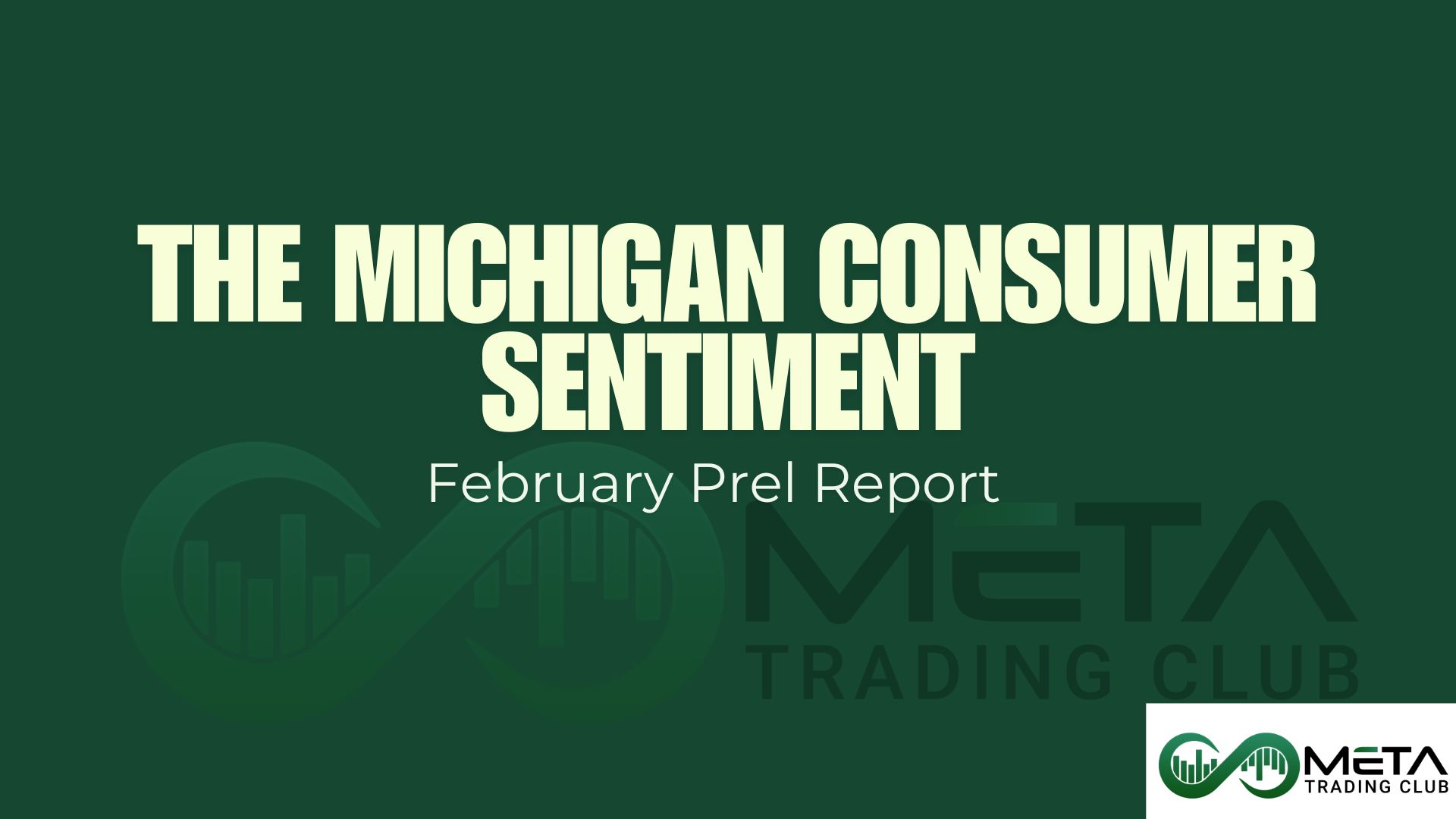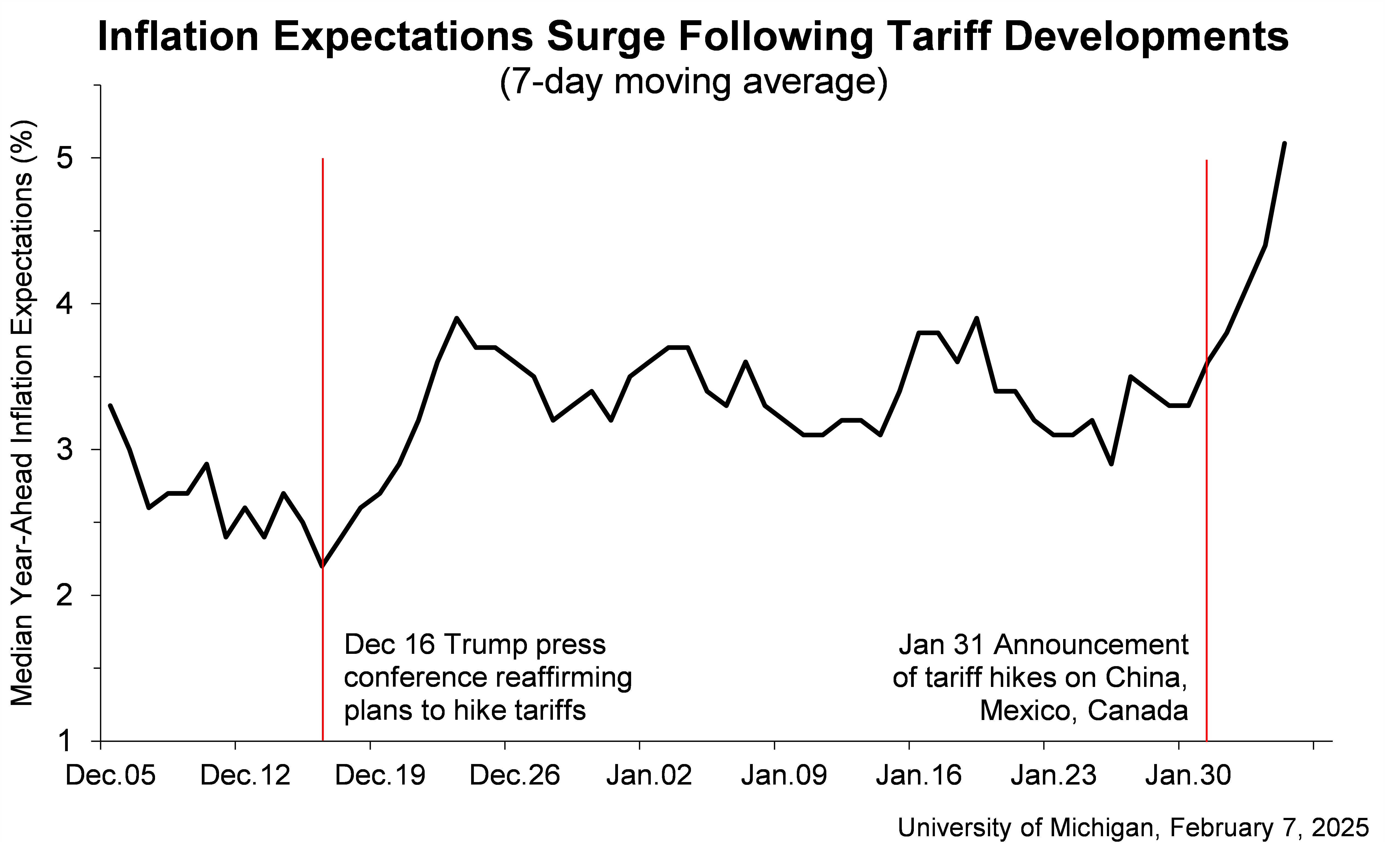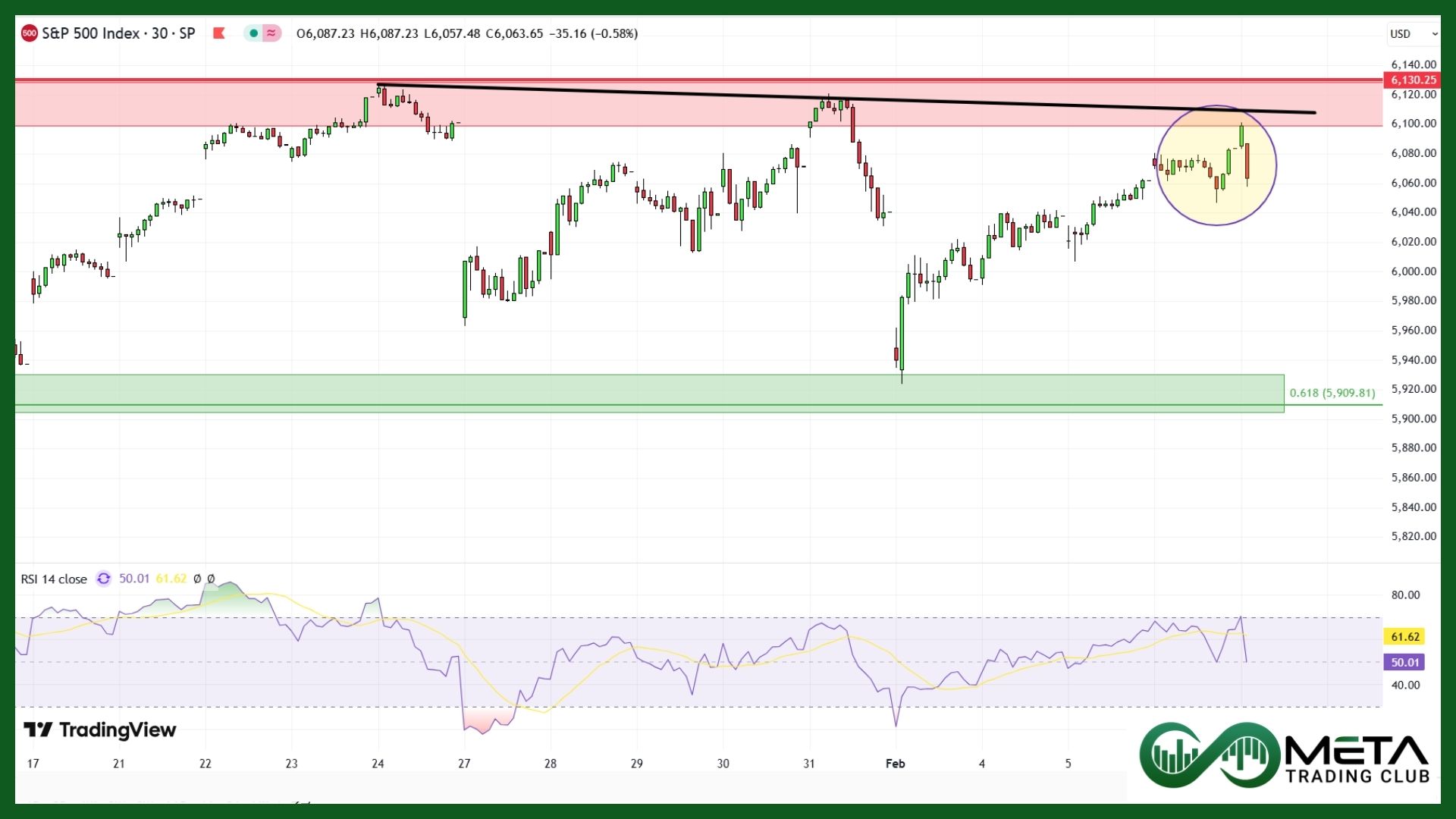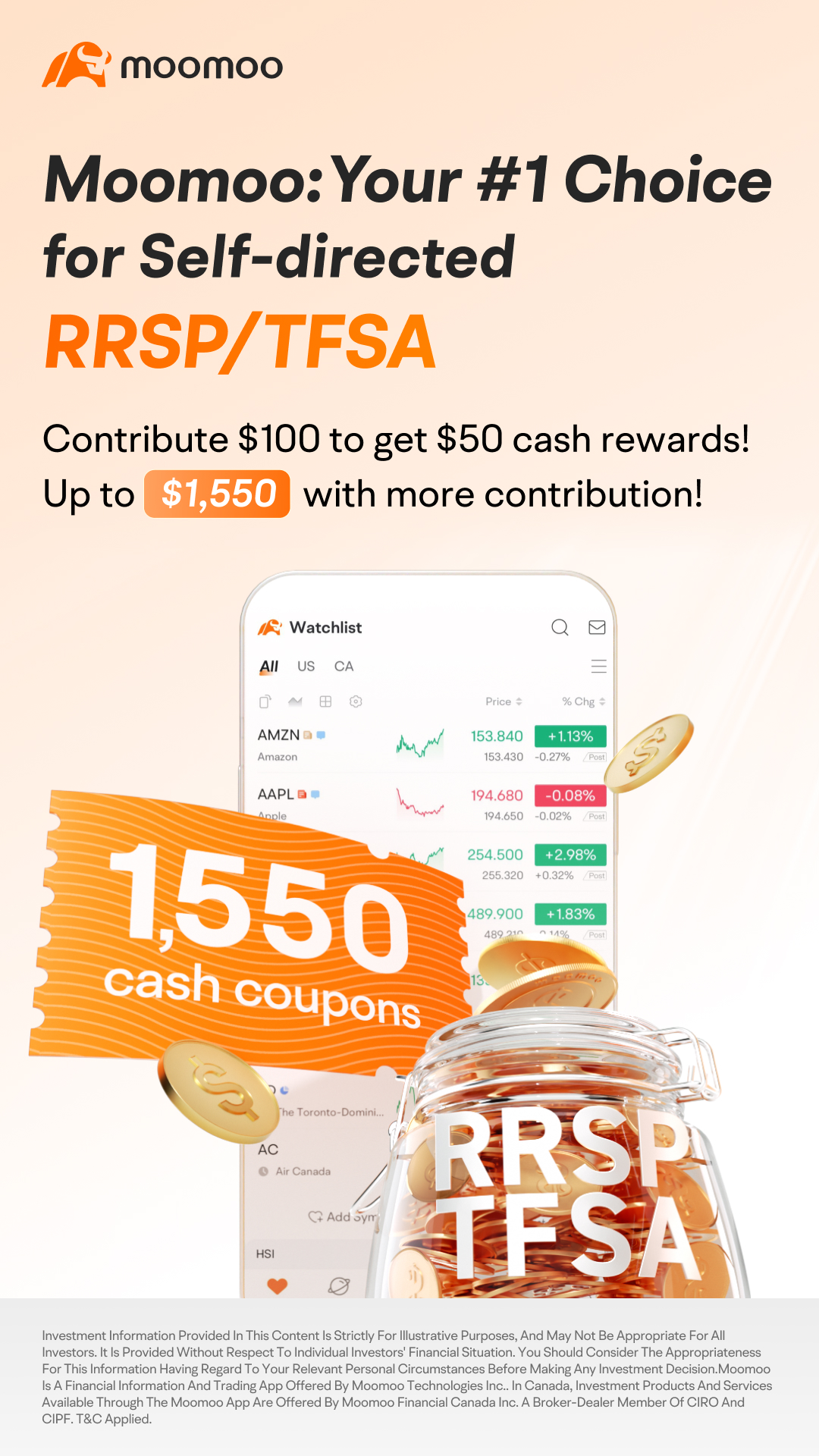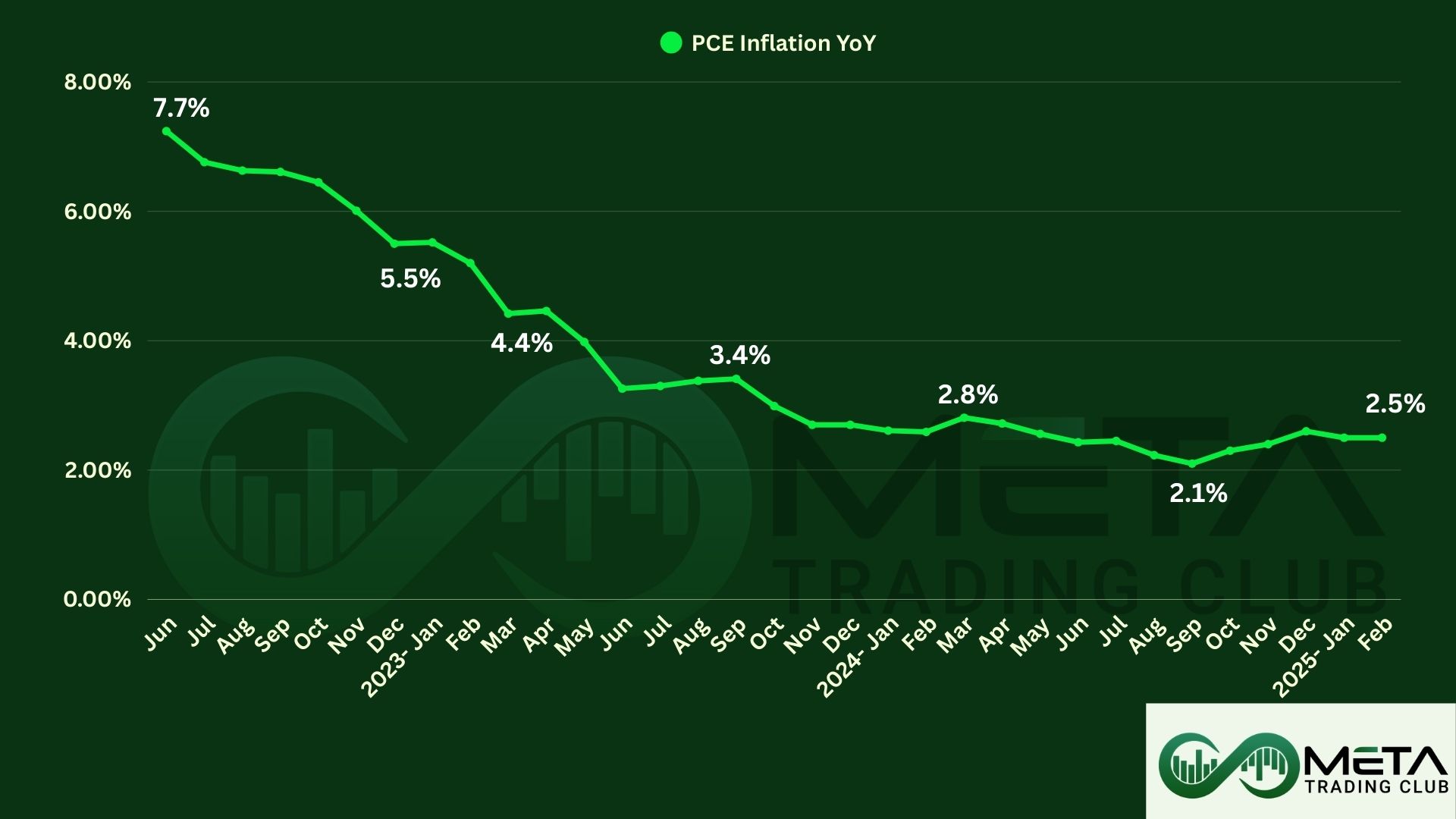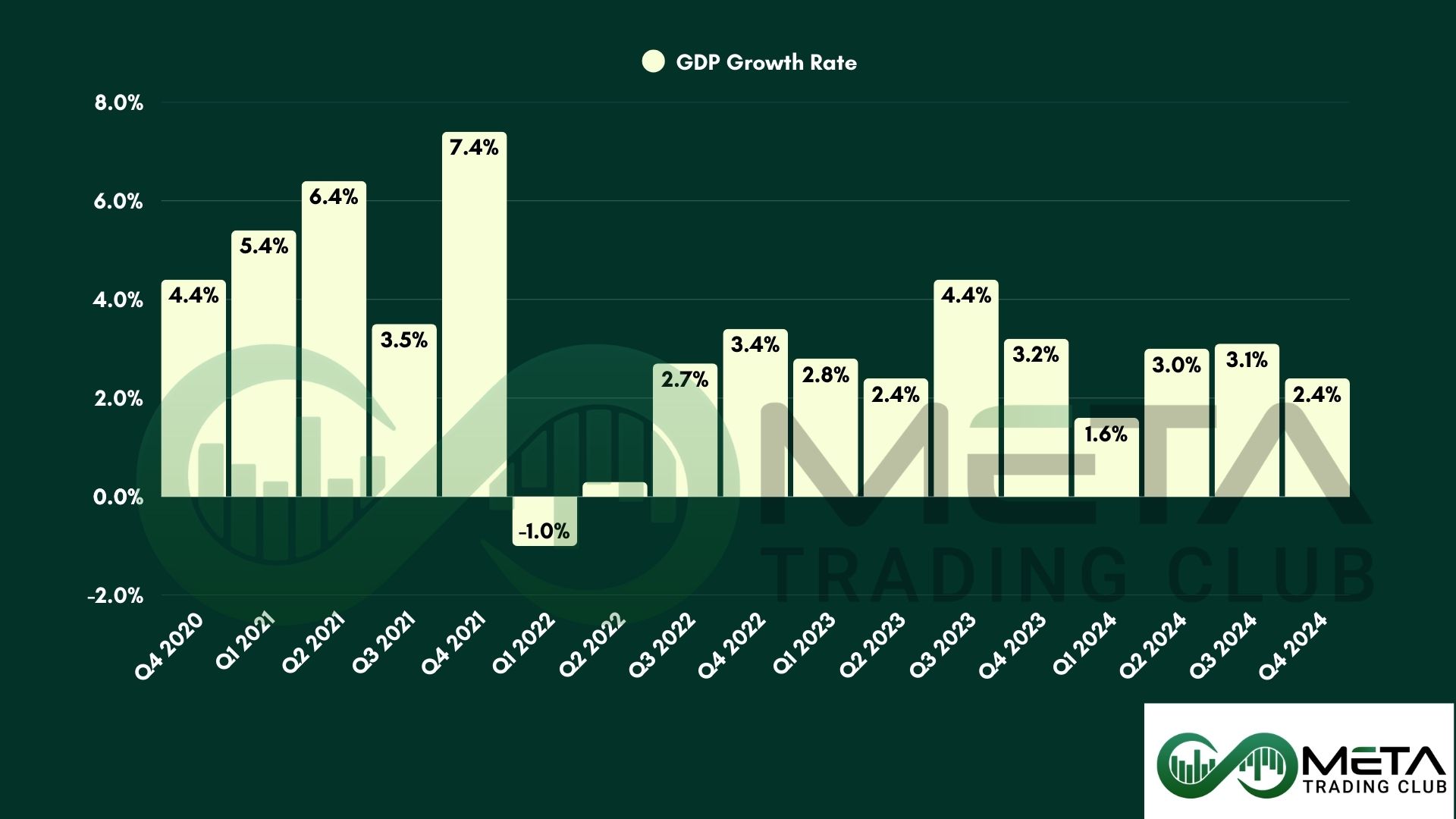The Michigan Consumer Sentiment Index (MCSI) is a monthly survey conducted by the University of Michigan that measures consumer confidence levels in the United States. The survey gathers data through telephone interviews, focusing on consumer expectations for the economy, their current financial health, and the prospects for longer-term economic growth.
Consumer sentiment is considered a valuable economic indicator as it reflects the overall health of the economy based on people’s opinions and feelings. The MCSI takes into account short-term and long-term economic expectations, providing insights into consumer spending and saving behavior
Michigan Consumer Sentiment: February 2025
Consumer sentiment fell for the second month in a row, dropping by about 5% to its lowest since July 2024.
The decline was widespread, affecting Republicans, Independents, and Democrats, as well as people of all ages and income levels. All five index components declined, with a 12% drop in buying conditions for durable goods, partly due to worries about tariff impacts.
Also, expectations for personal finances fell by 6%, reaching the lowest level since October 2023. Many consumers are concerned that high inflation will return within a year. Interviews for this report ended on February 4.
Inflation Expectations
Year-ahead inflation expectations jumped from 3.3% last month to 4.3% this month, the highest since November 2023.
This is only the fifth time in 14 years that such a large one-month rise has occurred. The current reading is well above the 2.3-3% range seen in the two years before the pandemic. Long-run inflation expectations also increased from 3.2% last month to 3.3% this month, staying above the 2.2-2.6% range seen pre-pandemic.
The ongoing decline in consumer sentiment, along with rising inflation expectations, highlights the economic challenges and uncertainties consumers are facing. The decline in sentiment spans political affiliations, age, and wealth groups. The significant increase in inflation expectations suggests that consumers are increasingly worried about persistent inflation pressures.
Impacts of the Report on Stock Market
The S&P 500 has been falling since the consumer sentiment report came out. This decline is likely due to the negative outlook in the report, making investors cautious. Lower consumer sentiment and higher inflation expectations can reduce spending and corporate profits, affecting stock prices.
Inflation is also influenced by tariffs. Tariffs on imports raise prices for goods and services, as businesses pass on the increased costs to consumers. This contributes to overall inflation, as seen with recent tariff increases on goods from Canada, Mexico, and China. These added costs can disrupt supply chains and slow economic growth, further impacting inflation.

